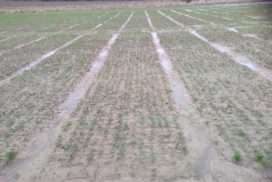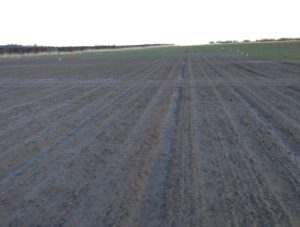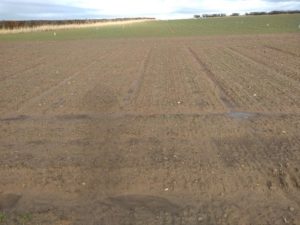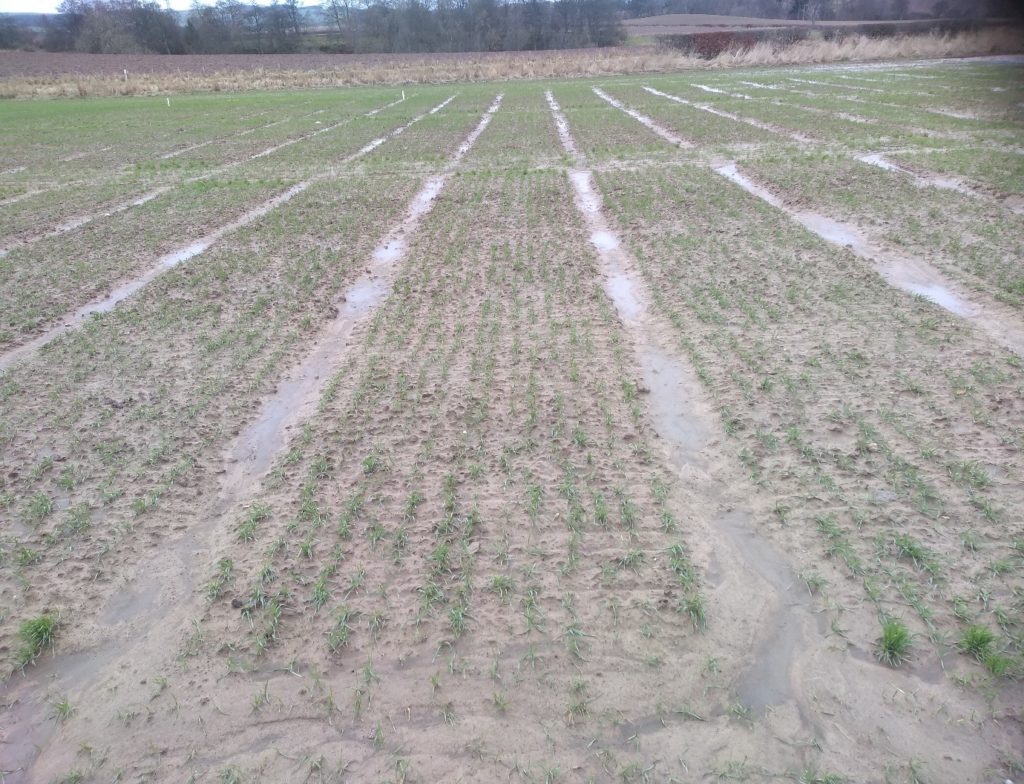Crop Protection Needs in Late Drilled Crops
1 July 2020Late drilling of cereals this year has been inevitable after the challenges of a very wet autumn and winter. In general Scotland’s winter barley crops went in before the weather broke and are looking relatively well despite saturated soils. Winter wheat is a different story and crops where drilling was delayed by wet weather until late October or later have commonly struggled with emergence, often looking very poor and with seed often rotting in the drills.

These wheat plots at SRUC East Lothian trial site were drilled on 2nd October and emerged well, although wet conditions are clearly taking a toll
Wheat drilling has continued into the new year where ground conditions have allowed but the crop protection needs of late drilled crops are very different to those of early drilled crops. SRUC trials conducted as part of an AHDB project on wheat agronomy show that delaying drilling for a month has the broadly the same reduction on Septoria levels as drilling a susceptible 4 rated variety versus a resistant variety rated 8. That gives plenty of scope to reduce early inputs to the late drilled crop, which probably aligns with a more reduced yield potential. The need for a T0 spray timed for before the first application targeted at leaf 3 emerging (T3) is very reduced in a late drilled scenario. One reason for a T0 might be to manage mildew although with the reduction in Leeds in the Scottish acreages there are fewer reports of mildew this year. Yellow rust is another reason why a T0 might be justified but with less winter crop in the ground and very few early reports, even south of the border, the risk is probably lower this year than most.

What a difference 3 weeks made. The wheat plots at SRUC’s East Lothian site at Humbie in the background were drilled 2nd October and those in the foreground were drilled 22nd October – emergence in December was minimal
Stem base disease risks are another factor reduced by late drilling and this might allow for further rationalisation of T1 inputs where commonly SDHI and prothioconazole actives have helped to manage the risk from eyespot. If eyespot is less of a risk then reducing rates or taking out the SDHI component might be an option if other disease risks allow.
In winter barley the overwintering issues can be various and include rhynchosporium, net blotch and mildew. Crops to date seem fairly clean but if disease does get established then it can be hard to nail at the main T1 timing aimed at the start of stem extension and an early spray at mid-tillering could be justified. If early disease is highlighted from crop walking then a T0 spray using different fungicide groups to those intended for later in the season is a sensible approach to reduce the risk of fungicide resistance in your later chemistry.

The same trial pictured mid January – despite appearing a write-off in December the crop is starting to braid and green rows are just visible
Tailoring fungicides to suit the seasonal risks and the drilling dates of crops is very much part of an Integrated Pest Management Approach – and a plus when you fill in your in-line IPM plan here
Fiona Burnett, SRUC
Article first published in the Scottish Farmer
Sign up to the FAS newsletter
Receive updates on news, events and publications from Scotland’s Farm Advisory Service

